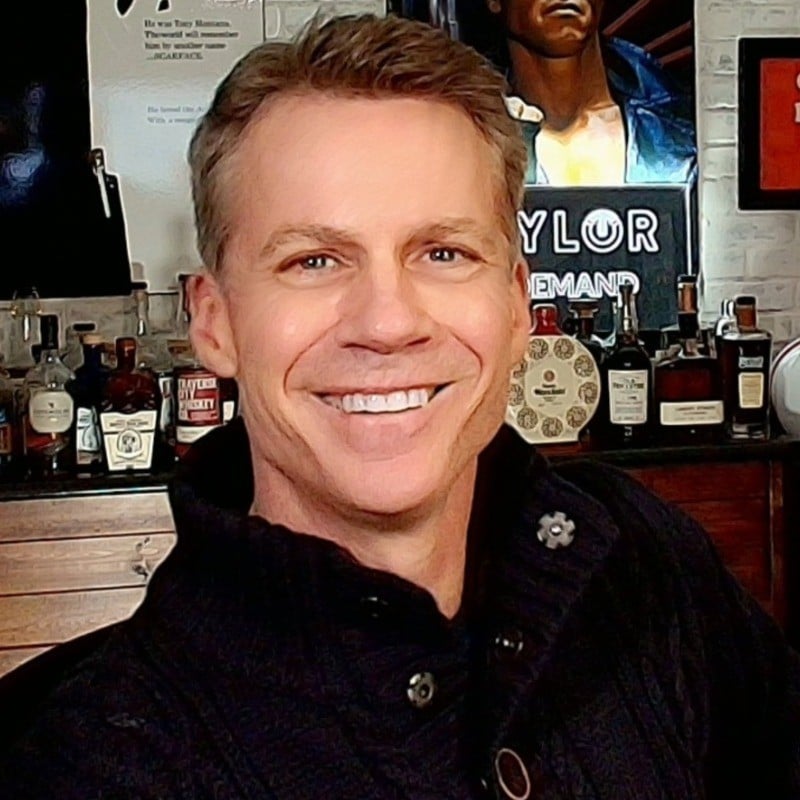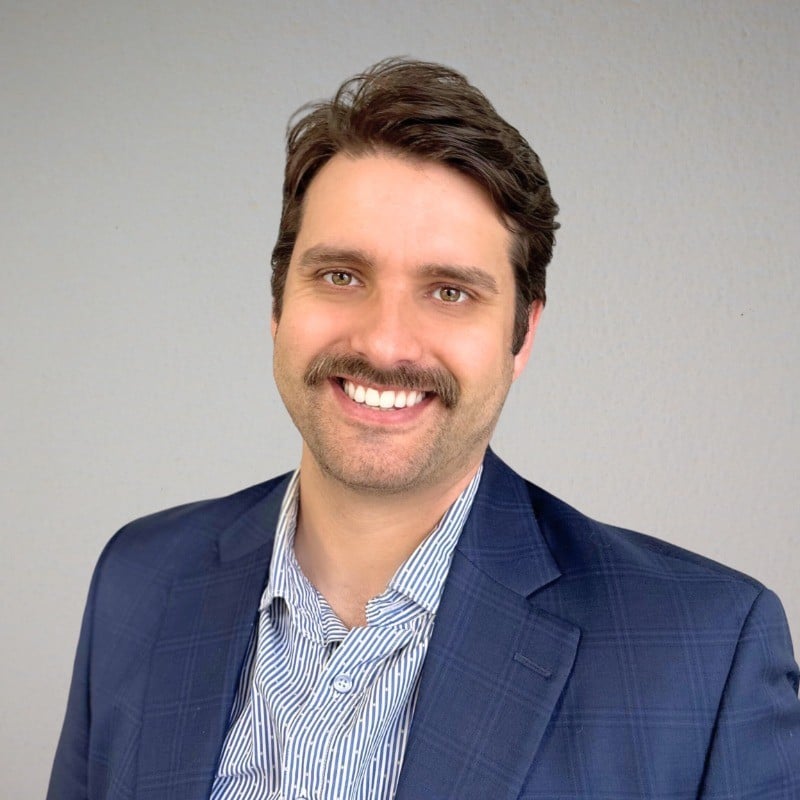When disaster strikes, the promotional products industry has so much of what is required to provide aid.
It has products. (Does it ever have products!) It has facilities to temporarily house donations. It has financial power. And above all else, it has people who care. That part has been proven time and time again with check books opened and boots hitting the ground.
However, all of that can still have a limited impact on those who need help without one very important asset: coordination.
If the willing parties are working together, they can gain much more traction and bring aid to significantly more people in times of crisis. Lawrence Hanley, CEO of Desk Plants, and Rusty Pepper, head of global markets and partnerships for Taylor Promo Marketing, PPAI 100’s No. 14 distributor, are trying to bring that collaboration to promo’s disaster relief efforts.
- Together, Hanley and Pepper have founded Team On Demand, a 501(c)(3) nonprofit organization that brings a blueprint for coordinating relief efforts that promo companies can provide for hurricanes, wildfires, tornados and other natural disasters.
- This includes financial support guidance, how nearby facilities can become temporary hubs for donation collections, boots-on-the-ground volunteer opportunities and more.
The enterprise came as a result of the duo’s own personal call to action amid the Central Texas floods this past summer, not far from their homebase of Austin. Both men sat down with PPAI Media to discuss why they were inspired to start Team On Demand, the organization’s goals and why the promo community should get on board.
PPAI Media: Talk me through the Fourth of July weekend and the way you felt that it led you two to this.
Lawrence Hanley: On July 3, it just seemed uncharacteristically wet, but when we woke up on July 4, it was pretty apparent what was happening about two hours to the west of us here in Austin. It was shocking. Just seeing the images of that flood in areas that Rusty and I are very familiar with from going out and having lazy days by the river.
And then what really broke my heart – I’m a new father as of April – seeing some of the camps that the children were taken away from. That was kind of the point where it was like, OK, this is no longer a tragedy I’m seeing on a screen. These are my neighbors. These are my people – my community – who are losing their kids, their brothers, their sisters, their parents. Everybody was affected.
RELATED: ‘A War Zone:’ Texas Firms In Shock Over Deadly Floods
When the sheer number started coming out, just on how many missing people there were within 24 hours, the sheer amount of water they were recording and the flood levels… July 4 was a Friday this year, and by Saturday, I’d made up my mind I can’t just sit and not do anything.
So, on Sunday, I recorded a snippet for LinkedIn and set up a gift registry on Amazon, as you would for a baby shower or something. I added a bunch of relief items that were needed, like bleach, trash bags, water bug spray, feminine hygiene products, the whole thing. And I put it out there, and I was hoping maybe 50 people in my network might see it and feel generous enough to donate one or two pieces.
Well, by the end of the week we had about $24,000 worth of goods bought from just that Amazon list alone. We even got a little help from my partner Jason Lucash over at Rupt. He was able to connect with CJ Schmidt, president and CEO of Hit Promotional Products, and they were able to send a bunch of stuff. They sent a 56-foot truck. And so, in total, the value raised was just around $90,000-$100,000. That was how it all started.
Rusty jumped in on day one, and he and I coordinated a trip out to Center Point, Texas, and we got all the items that were donated into the hands of those that needed them at the drop points. It turned out to be a really moving experience for both of us.
Rusty Pepper: I had never been a part of a disaster relief effort. You always see it on TV or the internet, but until you are actually there, you don’t know.
We went out there and were part of the rescue crew that went out to look for missing bodies or missing people. At this point, it was more recovery. And so, you’re looking for fingernails, anything that smells or anything that can really tips off the fact that there’s a body in there, and you’re going through literally 20 or 30-feet high river debris. It’s tragic, and everything is destroyed.
This little town of Center Point was an epicenter for relief efforts, and it wasn’t equipped to handle it. It was like controlled chaos. On the way back, we thought, ‘There’s an opportunity here.’ Just the little bit of effort of sending out a post got us so much traction.

Rusty Pepper
Head of Global Markets and Partnerships, Taylor Promo Marketing Co-Founder Team On Demand
If you’re in a region where a disaster happens, there’s a facility somewhere across the country, within 510 miles of any disaster zone in this country. We’re pretty confident that you can find somebody that’s in this industry that lives or has the facility near where any disaster is going to happen.
Just like for this disaster, we used the Rupt and Desk Plants facilities to get products staged. We had people that could and wanted to volunteer. We just needed a playbook on how to help manage people within the print and promo industries to have coordinated efforts to volunteer time, money and resources. There’s a lot of things as an industry we can bring to these disasters.
So, on the way back, we both kind of looked at each other, go, there’s a thread here. We need to keep pulling. That’s how Team On Demand came about and that’s why we set up a 501(c)(3).
PPAI Media: It feels this can be very much needed, even for regional associations and PPAI at times of disaster, to have somebody make sure everything is directed to the right place.
Pepper: There are so many people that want to do good in this industry. They want to give back. They just don’t know where to go.
Even our company was suggesting we make a financial donation, and was like, “But to where? Do we know exactly where our money will be going?” What we want to do is really create that transparency, so people know, hey, there’s going to be content around where these donations go. There’s video on where donations are being picked up, driven to and dropped off. But also, we want to direct people where to financially donate and where to go to volunteer.
Hanley: We want to be a tangible thing that people can engage in. The other thing is, we want to tell the story after these missions are completed, so that people see, ‘Hey, I was a part of the cleanup for Hurricane X, you know, in November or whatever. And I really feel like my donation went somewhere.’ Then they can even post about it and say, ‘Hey, look, I donated to this cause. It was amazing.’
PPAI Media: You got this non-profit set up quickly all things considered.
Hanley: We were hustling to get this going fast because we knew, at any point, we could have a storm with a track toward one of the coasts. We’re well aware that fires could break out at any point in California and in the spring, we get all those violent tornadoes that rip through the Midwest. So, we’re very mindful that at any point things could get hairy, and we’re going to be called upon to respond and be that centralized point for donation relief.
PPAI Media: How do you tackle the question of when a disaster rises to the level of needing urgent relief?
Hanley: Rusty and I have agreed that if it was a FEMA response, that’s when we would kick in our efforts. Now that’s not to say if something happened and somebody reached out and asked if we could help that we wouldn’t. We can still find ways to send a message of like, ‘Hey, if you want to donate, to this area of West Virginia that was affected by a flood that maybe isn’t at that level of FEMA…’ We’re happy to communicate that message.
PPAI Media: You both have full-time jobs in promo. How are you going to have time for this?
Hanley: When I look back to the experience that we had in July, it was pretty quick to get everything set up. Our goal is to create this blueprint that we can replicate any time something happens. So, the actual initiation of things, like just information, communication, where to send things, how to get an Amazon list up, that’s pretty quick.
Our mission isn’t to be out there day one after disaster. That isn’t our line of work. Our line of work is to help those in the weeks afterward when the media attention has moved on to the next big thing, and those people are still very much in need.
Pepper: We’re three months into this. We’re going to learn as we go. We can work remote. We can travel. We’ve got this. Lawrence owns his own company. I’ve got the full support of Taylor.
PPAI Media: Is it accurate to say that there is a call to action to get folks from the industry to basically volunteer their facilities for future use should the need arise?
Pepper: Yes. If you have a facility and you want to be a partner, sign up. You have no obligation. You’re not committing to anything except, should there be a disaster in your area, you might open up your doors to make for a collection point for donations to come in. We’re not necessarily talking thousands of square feet. And it’s going to go right back out.
The second part is financial donations to be put toward kind of covering operating costs for Team On Demand. And it’s completely transparent. We show you our operating budget.
PPAI Media: The hardest part, I imagine, for something like this is the launching and getting started. Creating all the little things like a website and filing for a 501(c)(3) and getting everything set up for others to take advantage of.
Pepper: It’s not cheap to do. You have to hire an attorney. It’s not hard, but there are costs. You must be willing to do it, and you have to have a reason to do it. Lawrence handled the website. It’s just time, energy and effort to try to go figure everything out.

Lawrence Hanley
CEO, Desk Plants & Co-Founder, Team On Demand
PPAI Media: What else should readers understand about your mission?
Hanley: Anybody at any time can be hit by a natural disaster. It’s unpredictable. And what we’re doing in launching Team On Demand is having a fully capable playbook to help any community. We’re setting something up to be on standby for when these things happen.
Pepper: Everybody always says, ‘I want to help.’ Now, we have an easy way to be involved. When something happens, hopefully there will be an easy way to amplify that message, and there will be people ready, and they’ll know where to go. At the end of the day, we want to be a conduit, a place where people can go to get the information they need, so they can give back when things happen.


